You can see the interesting world under the water and enjoy the beauty of marine life when you snorkel. Taking underwater scooters with you can make snorkeling even more fun. You can go deeper into places and go farther on these scooters without getting tired. This mix makes the experience easier and more fun while also helping you learn more. Using a scooter can make your time in the water better and help you find new things, no matter how experienced you are or how new you are.

What is Snorkeling?
Snorkeling Gear and Environment
As you float on the water, snorkeling is a simple sport that lets you see what's living below. Some of the basic tools are:
- Mask: Provides a clear view of the underwater environment.
- Snorkel: A flexible tube that lets you breathe while keeping your face submerged.
- Fins: Help you swim more efficiently and cover more distance.
Snorkeling is usually done in shallow water, like coral reefs and the ocean near the shore, where it is easy to see the sea life.
Key Advantages of Snorkeling for Beginners
Snorkeling has several specific benefits that make it an attractive option:
- Easy to Learn: Most people can start snorkeling with just a brief introduction to the gear.
- Wide Variety of Marine Life: You can see fish, corals, and other sea creatures without needing extensive training.
- Good for Fitness: Swimming engages your muscles and provides a cardiovascular workout.
- Family-Friendly Activity: Suitable for children and adults, making it a great way to spend time together.
- Affordable: Generally requires less investment than scuba diving, with lower equipment costs and no certification needed.

Challenges and Limitations of Snorkeling
While snorkeling is enjoyable, it also presents specific challenges:
- Shallow Depths: Snorkelers are limited to depths of 10 to 20 feet, which means you cannot explore deeper reefs or shipwrecks that might be more fascinating.
- Physical Demand: Extended swimming can lead to fatigue, particularly for those who are not strong swimmers or are unaccustomed to physical exertion in water.
- Gear Familiarity: Beginners may find it challenging to adjust to the mask and snorkel, leading to discomfort or panic if water enters the snorkel.
- Visibility Issues: Murky water can obscure your view of marine life, reducing the overall experience and making it harder to navigate safely.
- Safety Risks: Strong currents can pose a danger by pushing snorkelers away from their intended area or making it difficult to return to shore.
Being aware of these problems will help you get ready for your diving trips. You can have a safe and fun time in the water if you know what to do and take the right steps.
What Are Underwater Scooters (DPVs)?
Basics and Types
Underwater scooters, also known as Diver Propulsion Vehicles (DPVs), are battery-powered devices that help users move through water efficiently. These devices come in several forms:
- Recreational Models: Compact, handheld units perfect for snorkeling and shallow diving
- Mid-Range Scooters: Larger units suitable for two-handed operation
- Technical DPVs: Robust models designed for deep diving and cave exploration
How Underwater Scooters Work
Electric Motor Powers Movement
An underwater scooter's electric motor moves a rotor, which is what moves the scooter forward. A simple trigger or handle lets users control their speed, a lot like how you use the throttle on a motorscooter. The whole system is kept in a waterproof case to keep water from damaging the electrical parts.
Lithium Battery Ensures Long-Duration Dives
Lithium-ion batteries that can be charged again and again power most current underwater scooters. You can explore underwater for a long time on a single charge, and the batteries charge quickly between uses. The battery life depends on the model and speed choices, so there is always enough power for full diving sessions. Sublue's Vapor underwater scooter, for instance, have a strong 13,000mAh battery that lets them run nonstop for up to 60 minutes.
Key Benefits of Using Underwater Scooters
Faster Swimming Speed (3-4 mph)
The seascooter makes a big difference in how fast you swim, from the normal 1 mph to 3–4 mph. With this faster speed, you can get to dive spots and underground caves that are farther away, and you can also explore deeper areas up to 400 feet.
30% Less Energy Use While Diving
During dives, using an underwater scooter makes it much easier on the body. This lower energy use means you use up to 30% less air than when you're normally diving, which helps you move through water currents more easily.
2-3x Longer Underwater Exploration
The scooter's efficiency allows you to stay underwater longer and cover more distance. This extended dive time, combined with reduced physical strain, creates better opportunities for underwater photography and marine life observation.

Why Combine Snorkeling and Underwater Scooters?
Cover 5x More Distance With Less Effort
With an underwater scooter, you can explore up to five times more area than with regular swimming. With speeds of up to 3–4 mph compared to 1 mph for swimming, you can get to dive sites and underwater features that are far away and would be hard to get to by swimming alone. This wider range makes it possible to visit more than one place at the same time.
Save Energy for Longer Adventures
You can stay in the water up to 30% longer when you use an underwater scooter because it makes you work out much less. The scooter's propulsion system does the work of going through water, which is especially helpful for:
- Beginners learning to navigate underwater environments
- Older individuals who might find extended swimming challenging
- Anyone carrying additional equipment like cameras
Get Closer to Marine Life
There are some special benefits to using underwater scooters to watch wildlife. You can get close to sea life without scaring it off because their electric motors are very quiet. The steady movement also helps you keep the same speeds and distances when watching sea creatures. This makes it easier to:
- Track moving marine life
- Navigate around coral reefs
- Position yourself for better viewing angles
Access Deeper Waters Safely
While traditional snorkeling typically limits you to shallow depths, underwater scooters enable safe exploration of deeper areas. Modern scooters can help you:
- Reach depths between 40-100 feet depending on the model
- Access submerged landmarks and deeper reef sections
- Explore areas with stronger currents that would be challenging to swim against
The combination of snorkeling and underwater scooters transforms basic surface swimming into an enhanced underwater adventure, allowing you to discover more while using less energy.

How to Safely Combine Snorkeling and Underwater Scooters
1. Select a Scooter with IPX8 Waterproof Rating
If you want to use an underwater scooter for swimming, look for ones that have been certified IPX8 waterproof and have multi-layer sealing structures. The best scooter should have protective propeller casings that keep the wheels from getting tangled up and automatic safety shut-off functions that turn the scooter off when an object is detected. When shopping for units, make sure they have reliable safety tethers, secure waterproof seals, and easy-to-use buttons that respond quickly to user input. Depth sensors that can turn off automatically add an extra layer of safety to your underwater travels.
2. Check Battery and Seal Condition
Before going into the water, it's important to check all of your gear carefully. First, make sure that the battery in your scooter is fully charged. Then, check all of the locks for any damage that might be there. Check the controls to make sure they work right, and clean up the area around the propellers. The safety tether needs to be securely attached so that it doesn't come loose from your device by chance.
3. Monitor Weather and Water Visibility
The state of the water is very important for your safety. Check the current strength and direction, and pay close attention to how visible it is. Checking the latest weather reports and wave patterns will help you decide if the conditions are right for your planned trip. If you can't see well or there are strong currents, you should put off your journey until the conditions are safer.
4. Find and Brief Your Diving Partner
When using an underwater scooter, you must work with another snorkeler. This buddy system lets you get help right away if something goes wrong, the battery dies, or some other emergency happens. Start your journey in shallow, calm water to get used to basic moves. Then, move on to areas that are more difficult.
5. Prepare Emergency Signals and First Aid
During the experience, your safety gear should always be easy to get to. A first aid bag, an emergency flotation device, and a signaling device or whistle should all be close at hand. Stay aware of your surroundings at all times, and check your equipment's performance often. Most importantly, don't go deeper than your skill level and the manufacturer's recommended depth. Going deeper than these limits puts your safety and pleasure of the experience at risk.

Best Locations for Snorkeling with Underwater Scooters
Florida offers some of the most accessible and scenic locations for underwater scooter adventures in the United States.
- Florida Keys' Barrier Reef - World's third-largest barrier reef system with 20+ feet visibility. Features John Pennekamp Coral Reef State Park and the "Christ of the Abyss" statue.
- Shell Island, Panama City Beach - Clear waters with depths up to 148 feet. Perfect for both beginners and experienced snorkelers.
- Phil Foster Park, West Palm Beach - Artificial reef snorkeling trail in 6-10 feet of water. Home to tropical fish, starfish, and octopus.
- Destin's Henderson Beach - Emerald waters with artificial reefs at 6-12 feet depth. Protected waters with excellent visibility.
Early in the morning is usually the best time to visit these places because the water is calmest and you can see the most. Plan your trip for these best morning hours to get the most out of your underwater scooter adventure.

Upgrade Your Snorkeling with an Underwater Scooter!
Combining snorkeling with underwater scooters makes exploring the ocean a lot more fun. With this mix, you can go farther, use less energy, and safely get to deeper water. There are great places to start this journey in Florida's clear waters, where you can rent gear or go on a guided tour. This new way of swimming makes exploring the ocean easier and more fun for everyone.


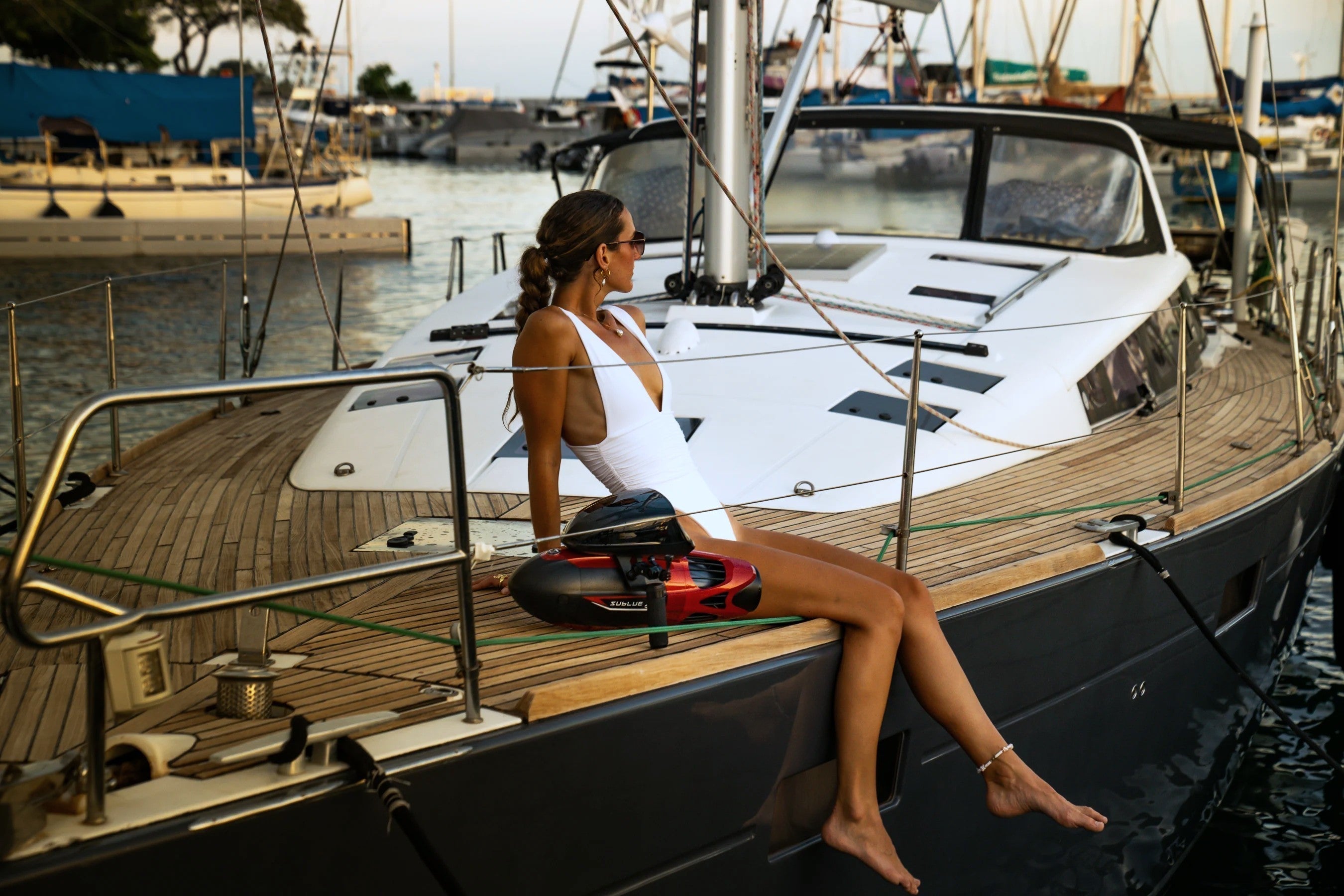

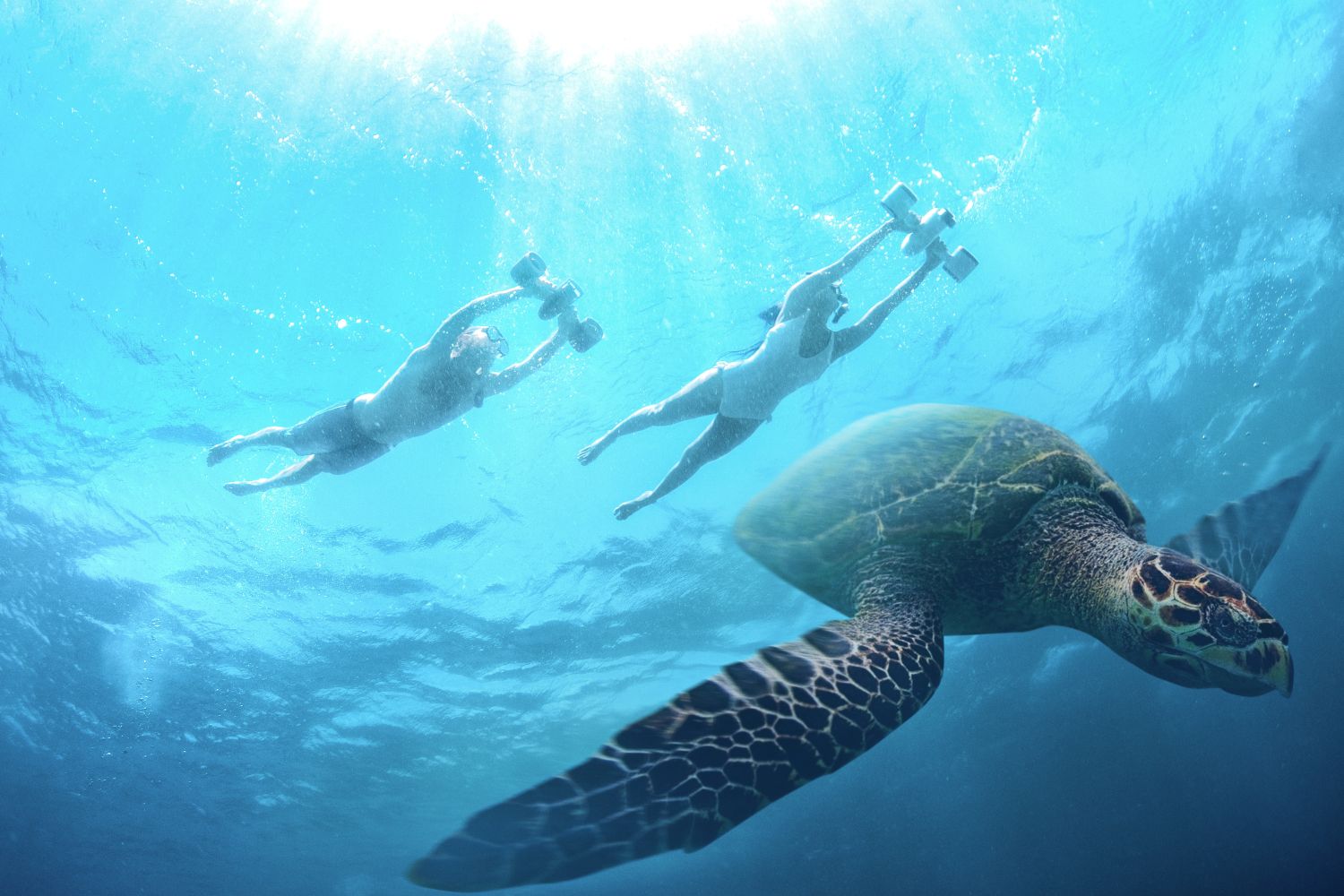

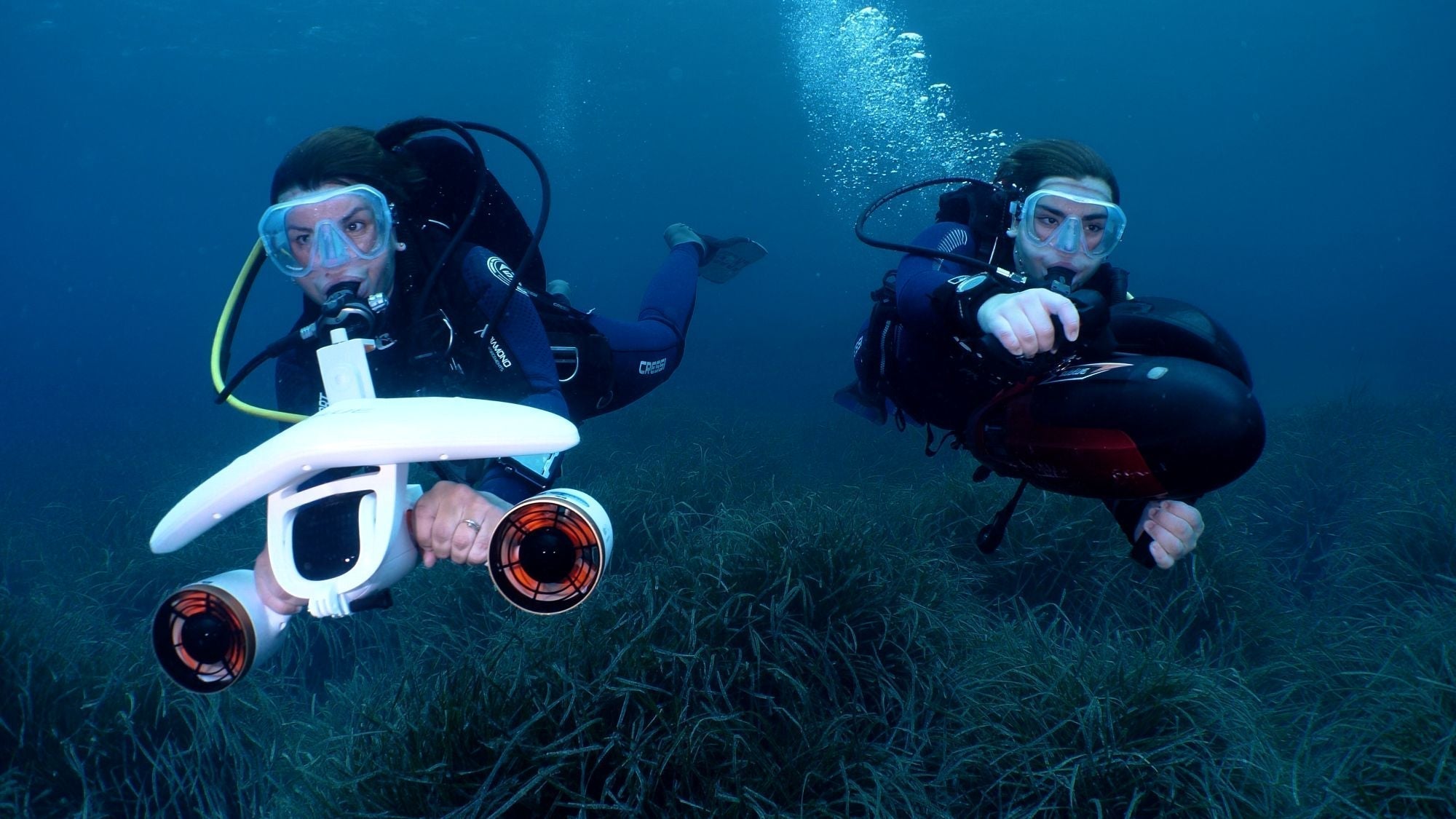
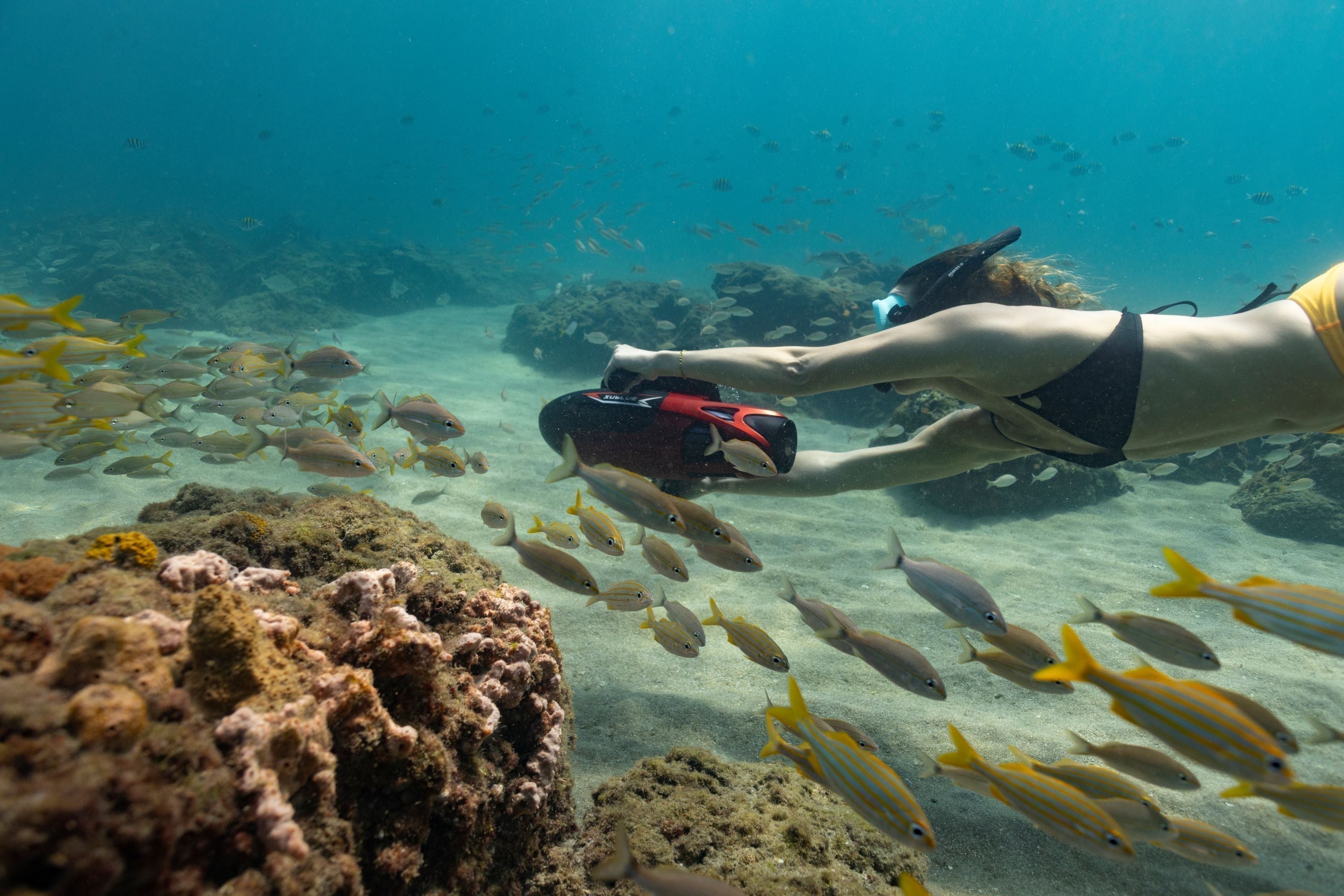
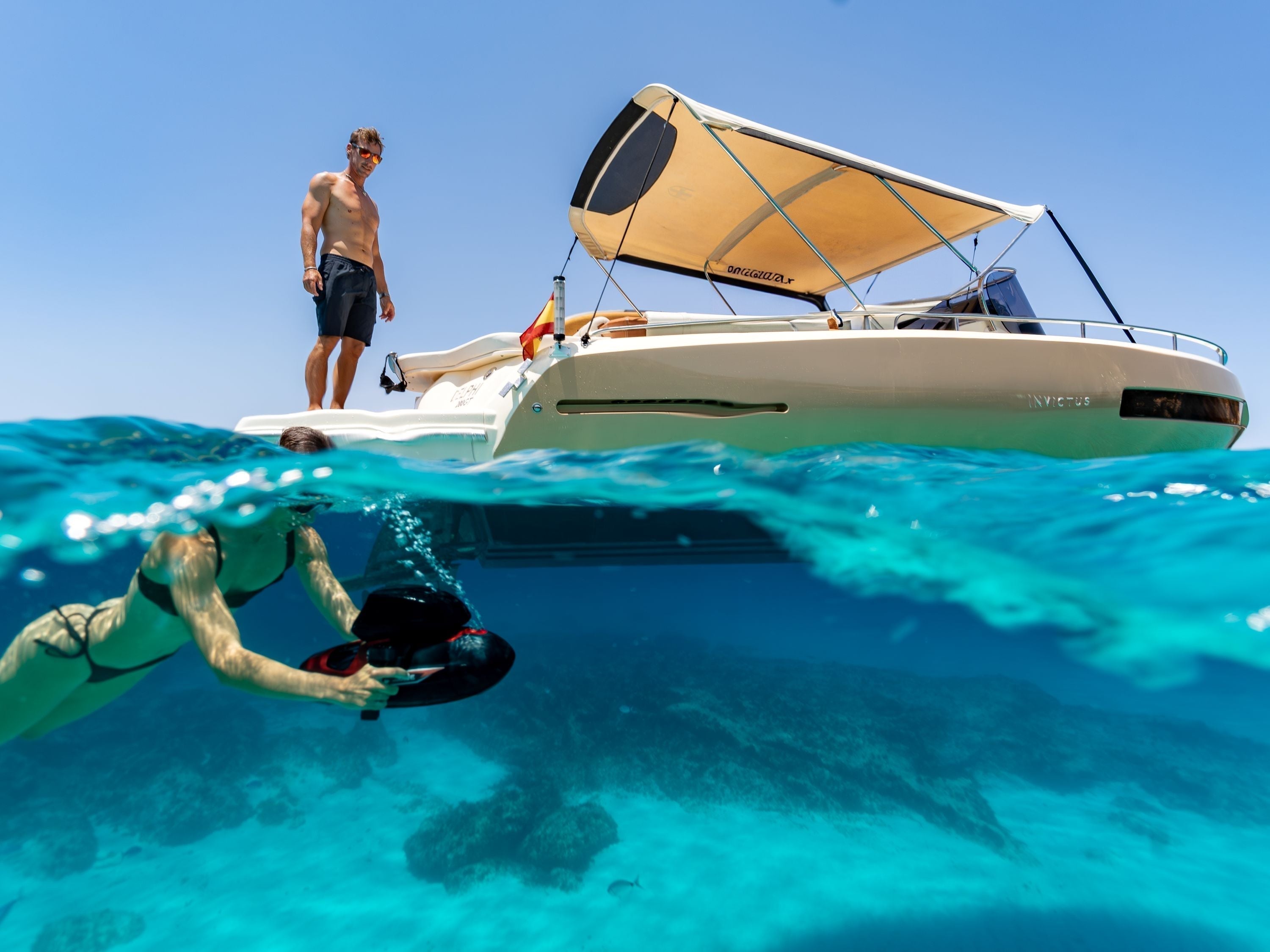
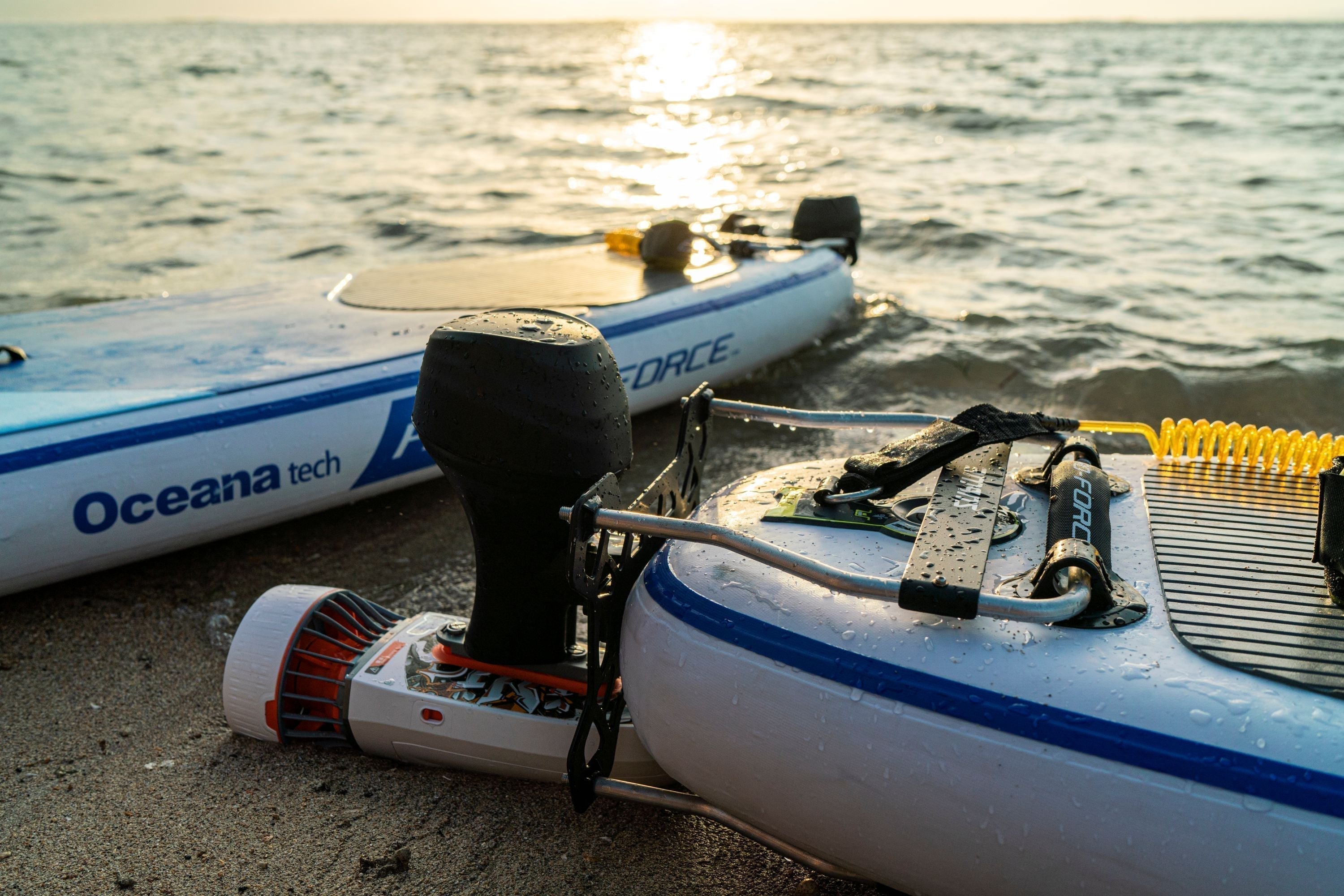
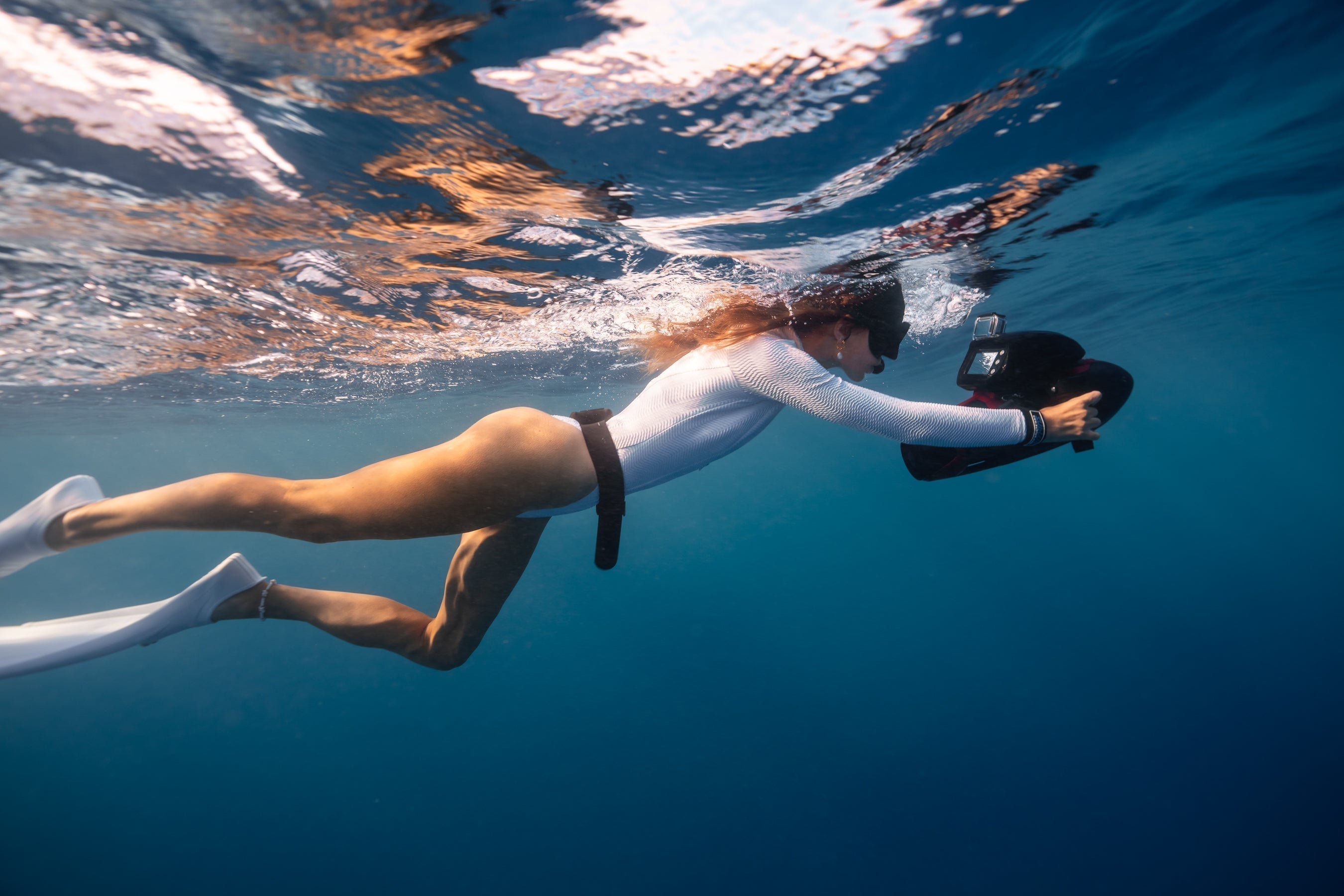


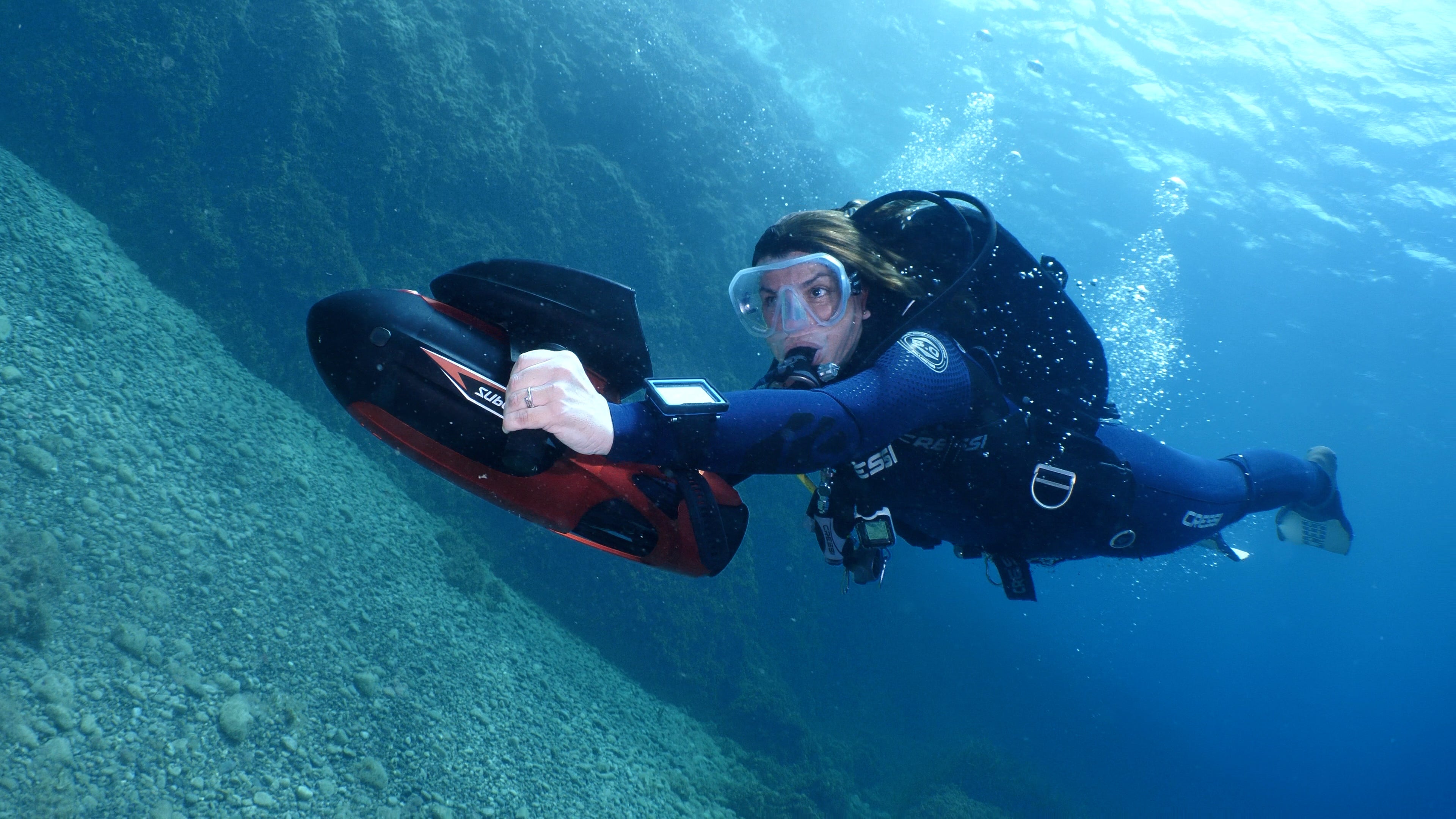
Share:
How to Use a Seascooter in Different Water Conditions
Sea Scooters vs. Sea Doos: What’s the Difference?